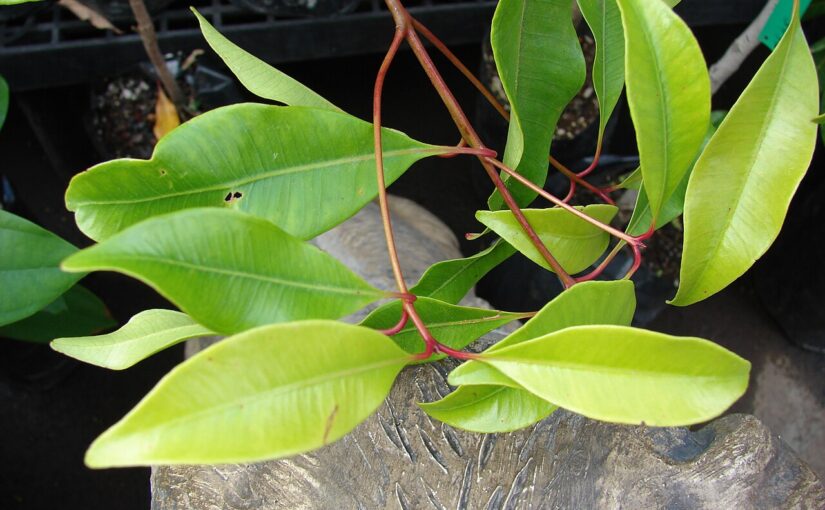Clove bud essential oil is harvested from Syzygium aromaticum, a timeless tree in the Myrtaceae family. Its origins trace to the lush Moluccas Islands of Indonesia and the southern Philippines, where it grows as an evergreen. Today, cultivation spans Madagascar, Sri Lanka, Tanzania, Brazil, and India, with Madagascar and Indonesia leading in production. The oil emerges from steam distillation of dried flower buds, harvested at peak potency. Expect a warm, spicy, sweet, and woody aroma, laced with balsamic and phenolic undertones. This scent anchors it as a base note in blends. The oil starts colorless to pale yellow, gaining depth with age, and holds a medium viscosity. Eugenol dominates at seventy-five to ninety-seven percent, joined by beta-caryophyllene, eugenyl acetate, and traces of alpha-caryophyllene and methyleugenol.
Historical and Cultural Significance
Clove’s story is as bold as its flavor. The name derives from the Latin word for “nail,” evoking the bud’s distinctive shape. Ancient Greeks and Romans turned to it for toothaches and fresh breath. In China, it warded off plagues with its antiseptic might. As a cornerstone of the spice trade, clove spiced love potions and mulled wines, while its aroma repelled insects. Once a mark of wealth, clove’s fiery essence symbolized protection and vitality. These traditions live on in modern aromatherapy, where the oil ignites resilience and wards off everyday ailments.
Therapeutic Benefits
Clove bud essential oil packs a punch of healing power. Its analgesic and antineuralgic effects target toothaches, nerve pain, muscle aches, arthritis, and sprains with precision. As an antiseptic and antibacterial, it battles germs, sanitizes surfaces, and thwarts infections from colds and flu to bronchitis. The anti-inflammatory action calms skin sores, acne, and joint discomfort, offering relief where it counts.
Clove fights back against microbial threats too. Its antimicrobial and antifungal properties tackle athlete’s foot, herpes, and shingles effectively. Antispasmodic qualities ease muscle spasms, digestive woes, and bloating. As a carminative and stomachic, it settles gas, diarrhea, and indigestion, while sparking appetite and digestion. Antioxidants in clove combat oxidative stress, bolstering overall wellness.
Insecticidal prowess repels moths and lice, making it a natural guardian. The oil stimulates energy, sharpens memory, and clears mental fog; it even acts as a warming aphrodisiac. Hemostatic effects may stem minor bleeding, though caution applies for clotting issues. Eugenol fuels these benefits, shining in dental care and pain management.
Aromatherapy Uses
Clove bud essential oil shines in practical applications. For topical relief, dilute to zero point five percent, or five drops per two tablespoons of carrier oil like coconut. Dab it on gums for toothaches, massage into muscles for aches, or rub the abdomen for bloating. Blend into salves for acne or fungal spots, always with care.
Diffusion brings its warmth indoors. One to three drops, paired with orange or cinnamon in a hundred milliliter water diffuser, combats bronchitis, lifts spirits, or cleans the air. Inhalation of a single drop from a tissue or inhaler clears sinuses, prevents colds, or boosts focus. For oral hygiene, one drop in two ounces of water makes a refreshing mouth rinse, but never swallow it.
In the home, clove guards against pests. A cotton ball with two or three drops in closets repels moths, and adding it to cleaners disinfects surfaces. Its potency demands restraint; overuse risks irritation. Store in glass to avoid corroding aluminum.
Emotional and Energetic Effects
Clove earns its title as the “Oil of Boundaries.” It sparks inner strength, dismantling victim mindsets, codependency, and fears of rejection. Confidence surges, self-assurance builds, and personal integrity takes root. Proactive decisions flow naturally, with clear lines drawn in relationships.
Linked to the sacral and solar plexus chakras, clove’s yang energy and fire-earth elements reignite the “inner soul-fire.” It heals emotional scars and hones mental sharpness. For those battling low confidence or fatigue, clove offers a steady flame of resilience.
Blending and Companion Oils
Clove bud essential oil pairs dynamically with others. It harmonizes with basil, benzoin, bergamot, cinnamon, citronella, clary sage, fir needle, ginger, grapefruit, lavender, lemon, peppermint, pine, rose, rosemary, sandalwood, sweet orange, and vanilla. Ginger, helichrysum, yarrow, blue tansy, bergamot, lavender, orange, and rose make strong companions, amplifying warmth and protection.
Substitutes like cinnamon, oregano, ravensara, chamomile, or juniper deliver similar warming or antiseptic vibes, though none match clove’s spicy depth.
Safety and Precautions
Clove’s high eugenol makes it a moderate irritant for skin and mucous membranes. Dilute to zero point five percent, patch test first, and steer clear of hypersensitive, damaged, or diseased skin. Avoid during pregnancy and for children under six; topical use below age two needs supervision.
It may slow clotting, so skip it with bleeding disorders, anticoagulants like warfarin, or MAOIs and SSRIs. Potential clashes with pethidine or antidepressants warrant a doctor’s check. Those with kidney issues should avoid it.
Store in a dark glass bottle in a cold, dark spot, tightly capped, for up to four years of shelf life. External use only, unless a professional guides ingestion.
Clove bud essential oil captures the fiery heart of an ancient spice. From the Moluccas’ evergreen groves, it delivers potent defense against germs and pain, while nurturing boundaries and resilience. In every amber drop lies a spicy flame, ready to warm, protect, and empower holistic wellness with timeless vigor.
Image: Forest & Kim Starr.
